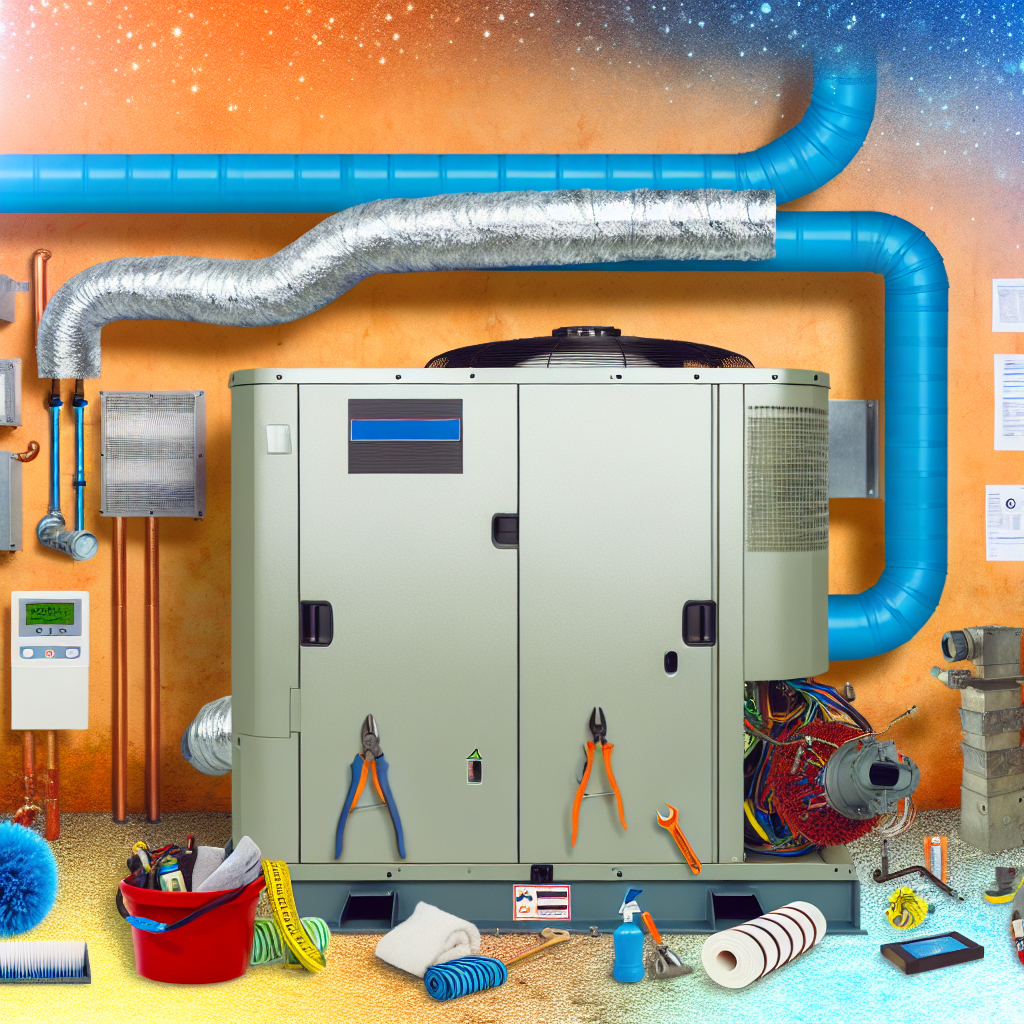Published: Oct 31, 2024

As the seasons transition, it's essential to ensure that your HVAC system is ready to provide optimal comfort in your home. Taking proactive steps to prepare your heating, ventilation, and air conditioning system for the changing weather can help prevent potential issues and enhance its efficiency. In this guide, we'll explore key tips to help you get your HVAC system in shape for the upcoming season change.
One of the most critical steps in preparing your HVAC system for a seasonal shift is to schedule a professional maintenance service. An HVAC technician can inspect your system, clean components, check for any issues, and ensure that it's running at peak performance. Regular maintenance not only enhances efficiency but also prolongs the lifespan of your system.
Regularly changing your HVAC system's air filters is a simple yet effective way to maintain its efficiency and indoor air quality. Clogged filters can restrict airflow, overwork the system, and lead to poor performance. Consider changing your filters every 1-3 months, depending on usage and the type of filter you use.
Over time, dirt, dust, and debris can accumulate in your air ducts, hindering airflow and reducing the overall efficiency of your HVAC system. Consider having your air ducts professionally cleaned to remove any buildup and improve indoor air quality. Sealing any leaks in the ductwork can also help prevent energy loss.
A properly functioning thermostat is essential for maintaining a comfortable temperature in your home. Check the settings, replace the batteries if needed, and consider upgrading to a programmable thermostat for better temperature control and energy savings. Programming your thermostat to adjust temperatures based on your schedule can help optimize energy usage.
Before the weather shifts, test both your heating and cooling systems to ensure they are functioning correctly. Turn on the heat and cool settings separately to check for any unusual sounds, odors, or performance issues. If you notice any issues, contact an HVAC professional for further inspection and repairs.
Proper insulation plays a significant role in maintaining a comfortable indoor environment and reducing energy costs. Check windows and doors for gaps or drafts, and add weather stripping or caulking where needed. Consider using curtains or blinds to help regulate temperature and reduce heat loss or gain.
If you have an outdoor HVAC unit, clear away debris, leaves, and vegetation that may have accumulated around it. Good airflow around the unit is essential for optimal performance. Trim any nearby plants or bushes to ensure they are at a safe distance from the unit.
If your HVAC system is older and not operating efficiently, it may be time to consider upgrading to a more energy-efficient model. Newer systems are designed to be more environmentally friendly and can help lower your energy bills in the long run. Consult with an HVAC professional to determine the best options for your home.

Our expert technicians are ready to assist you 24/7!
Contact Us Today!Read our latest articles for helpful information about heating, cooling, and air quality.
Regular HVAC maintenance is essential for improving energy efficiency, extending the lifespan of your system, enhancing...
Read MoreImplement these 10 tips to enhance the air quality in your home, promoting a healthier living environment for you and y...
Read MoreRegular seasonal HVAC maintenance is essential for maximizing system efficiency, ensuring indoor air quality, preventing...
Read MoreSmart thermostats offer energy savings, convenience, learning capabilities, and integration with smart home systems, mak...
Read More